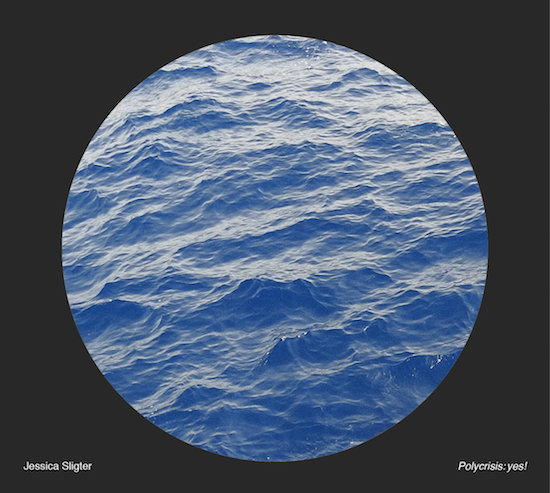Those who complain about the shallow state of politics in pop – complex issues reduced to soundbites for catchy couplets and easy consumption – should perhaps be careful what they wish for. Historically, there have been facets of the political process which loom over us, shape our very lives and are almost never addressed in song because they function as wonkish jigsaws of grey minutiae. One of these is the European Union. In the past two years, for obvious reasons, that has started to change.
Polycrisis: Yes!, the fourth album by Jessica Sligter, is a concept work about the EU. Not a celebration – the music is too dissonant and the words too bleak – but an acknowledgement of its power, how that was accrued in a climate of neoliberalism and how any challenge to its security threatens the existence of millions within it. While Brexit isn’t specifically mentioned in any of its eight songs, it presumably served as a catalyst for Sligter – who, as a half-Norwegian, half-Dutch artist who lives between Oslo and Berlin and travels around Europe to work – can be forgiven for having some personal investment in the issue. The album is vastly different to anything she’s previously released, featuring some great, challenging moments of sound design as well as deeply peculiar aesthetic choices.
The cover image of Polycrisis: Yes!, a nondescript photo of the sea, is credited to the Irish military’s Flickr account. This was presumably chosen for a reason, but I can at most speculate as to why. Then there’s the presence across the album of European Commission president Jean-Claude Juncker – excerpts from two of his speeches feature, on ‘The Dream Has Died’ and ‘The State Of The Union’. On ‘The State Of The Union’, Sligter recites his words over an unsettling synth stab, veering into singsong cadence as she asks “Do we want to let our union unravel before our eyes?” while a sample of Juncker’s original address plays underneath.
‘The Dream Has Died’, underpinned by stark industrial drone, weaves fragmented sentences into the musician’s minimal lyrics, causing the lament “If we’re honest / We don’t know enough about each other / Yet we talk as if we know everything” to read like millennial pop-missive angst in a technologically cold world. ‘Solidarity Corp (2)’ is the word “solidarity” recited 16 times, one for every use of the word in the EU Treaty, over a pleasant melodic keyboard motif. Juncker is fond of the word, suggest the sleevenotes; I associate it primarily with socialist argot, comradeship. Does that association mean anything to him? Does it to Jessica Sligter?
Before hearing this album, I’d bracketed Sligter as a frustratingly marginal artist – frustrating in that her music, somewhere between psychedelic folk and Laurel Canyon, was among the richest and most moving of its kind, but with no apparent prospect of this being recognised by the audience it deserved. ‘Everly’, from 2012’s Fear And The Framing, is one of those songs that’s counterproductively good, overshadowing the rest of her oeuvre. That it’s not being sung by five-figure audiences cradling warm wine may partly explain why, six years on, Sligter is opening an album with deep, meditative bass tones and quasi-operatic vocals deploring “the fiscal violence in the street, oh!”. The singing style is a new development for Sligter, and Scott Walker’s The Drift feels like a clear precedent. You might also bracket this particular convergence of sound art and commentary with Björk, Robert Ashley, Anohni and friend/occasional collaborator Jenny Hval, if you were writing sales notes.
Which I’m not, so my praise may be measured: Polycrisis: Yes! is a very impressive work, striking and singular, and should be heard by anyone interested in the notion of experimental songwriting. I couldn’t in good faith call it an Important Statement Record; given how quizzical large segments of it are, it may have no such pretensions. In the absence of clarity on her part, you’re left assuming that Jessica Sligter views the European Union much like most people: neither inherently good or bad, a hooded monolith from whose grip no nation on the continent can truly extricate itself.


